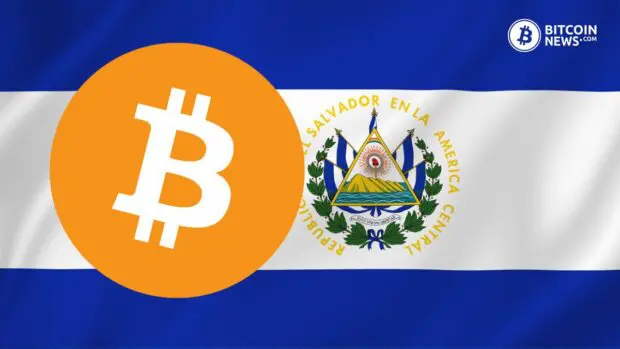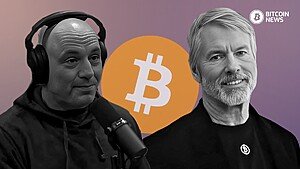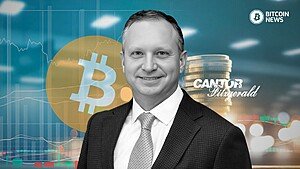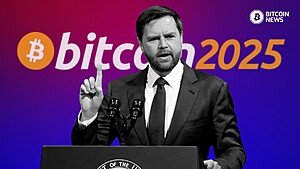El Salvador is known for embracing Bitcoin as legal tender to stimulate economic development. However, recent research surveys conducted by a group of esteemed economics professors reveal a nuanced and challenging landscape for El Salvador Bitcoin adoption and the widespread acceptance of this digital currency within the country.
The comprehensive research report, a collaboration between Yale Economics Assistant Professor David Argente, Economics Professor Diana Van Patten, and University of Chicago Economics Professor Fernando Alvarez, involved an intensive face-to-face survey conducted on 1,800 households.
It focused on investigating the use of El Salvador’s Chivo Wallet within households, aiming to uncover factors inhibiting Bitcoin adoption among firms and residents.
Widespread Adoption Challenges
Contrary to El Salvador President Nayib Bukele’s optimistic proclamation of widespread Chivo Wallet adoption, the research findings present a starkly different reality. According to the report, only a fraction of citizens use the Chivo wallet for digital currency transactions, indicating a lack of widespread acceptance and trust in Bitcoin among residents.
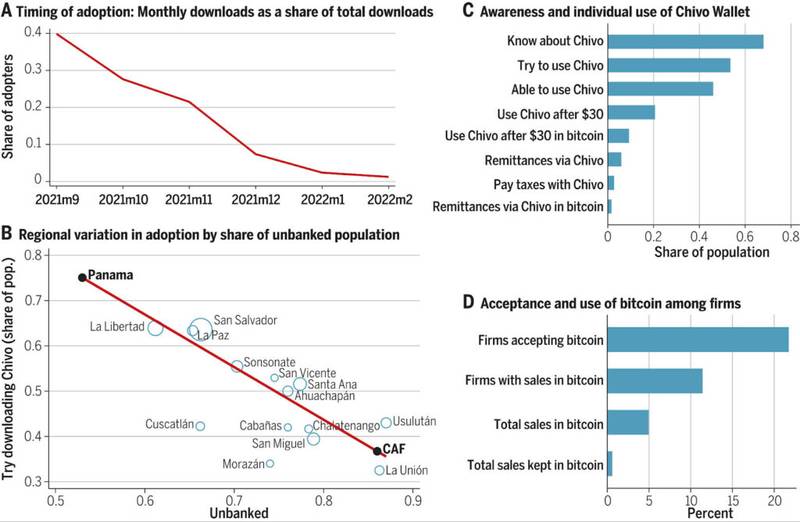
The report indicates that the initial surge in Chivo Wallet downloads was primarily driven by hype and the allure of free BTC offered upon its launch. However, subsequent trends showcased a decline in adoption and usage.
This casts doubt on the potential for increased Bitcoin utilization and Chivo Wallet adoption in the future.
El Salvador Bitcoin Adoption: Key Barriers
The researchers found notable awareness and initial app downloads, with almost 68 percent of potential users being acquainted with Chivo Wallet and 78 percent of that subset making an attempt to download it. However, the subsequent statistics witnessed a significant decline.
Despite government incentives, which included a $30 Bitcoin bonus, gas discounts for Chivo Wallet transactions, and the removal of specific transaction fees, nearly 20% of app downloaders hadn’t utilized their bonus at the time of the survey. Moreover, a considerable portion of El Salvadorans who spent their bonus did not continue using the app afterward.
Privacy and security emerged as pivotal barriers hindering the adoption of Bitcoin and Chivo wallets in El Salvador.
Moreover, while the world accepts bitcoin for its anonymity and transparency in financial transactions, the study revealed that El Salvadorans still perceived cash transactions as offering a higher level of anonymity compared to bitcoin transactions. The paper reads:
“Privacy and security concerns are key adoption barriers, which speaks to a policy debate on crypto and CBDCs with anonymity at its core. Additionally, we estimate Chivo Wallet’s adoption cost and complementarities among adopters.”
Political Backlash
The challenges facing El Salvador’s Bitcoin adoption extend beyond domestic concerns, prompting international attention and criticism. Several big names have raised questions about Bukele‘s actions in making bitcoin a legal tender in the country.
Lawmakers argue that El Salvador’s bitcoin experiment poses inherent risks that require a comprehensive evaluation of the interests and security of the United States.
Last year, Senators Jim Risch and Bob Menendez, serving as the ranking member and chairman of the Senate Foreign Relations Committee, respectively, reintroduced a bipartisan bill. The proposed legislation aims to commission a State Department report focused specifically on El Salvador’s adoption of bitcoin and its potential impact on bilateral economic relations and cooperation in law enforcement.
On January 31, Rep. Ilhan Omar, representing Minnesota’s 5th District in the People’s House, expressed concern about threats to democracy in El Salvador due to its novel financial methods. He sent a letter to the 71st Secretary of State, Antony Blinken, writing:
“The State Dept must review its relationship with El Salvador and defend democratic values. The Salvadoran people deserve free and fair elections without fear of repression.”
This request faced significant backlash, with El Salvadorans rejecting external interference in their financial matters.
Milena Mayorga, Ambassador of El Salvador to the United States, emphasized the sovereignty of the country’s elections, discouraging external involvement. She stated:
“Please don’t get involved and interfere in the election of a sovereign country.”
As El Salvador continues its pioneering path, the global community watches closely, witnessing a unique intersection of technology, economics, and diplomacy.

